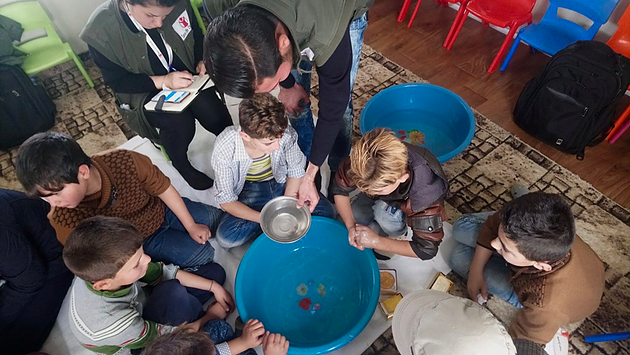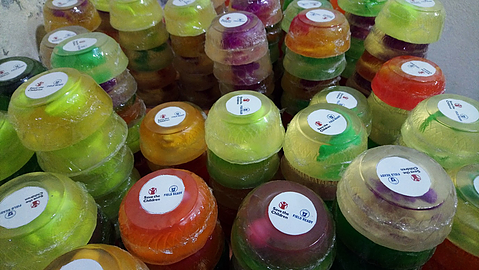Field Ready, a non-profit organization based in Illinois, enables rapid manufacturing for humanitarian purposes all over the world. Similar to the 3D printed rescue drone designed for humanitarian-aid, Field Ready’s various projects have combined experiences and technical skills of its aid workers to tackle the logistical challenges of disaster-stricken countries.
Following the devastating damage caused by the Nepal earthquakes in 2015, Field Ready deployed its team into the remote districts of Sindhupalchowk to create 3D printed medical supplies, for victims of in need of instant medical care.
Prior to this, Field Ready’s team, which consists of 25 aid workers, used such disruptive technologies in Haiti, South Sudan, Syria, Turkey and the U.S., to create water pipes, heavy-lift airbags, and electrical socket fixtures.
The hidden incentives innovation
Field Ready’s latest project known as the ‘Hidden Incentives Innovation’, sought to design and create a novel soap with hidden toys inside, with the help of children from the Sharia Camp in Iraq – a large group of internally displaced people (IDP) fleeing terrorism.
Within these camps, the rate of transmitting diseases are high due to overcrowding and a lack of water and sanitation, therefore, this project has been established to promote hand-washing hygiene within children to combat further illnesses in highly contaminated environments.

The soap is made with a 3D printed toy inside which encourages the child to scrub their hands thoroughly enough to reach their reward.
Earlier this year, Field Ready held a week-long workshop in collaboration with Save the Children Iraq and 14 “child designers” to create the 12 custom animal toys to be placed inside a transparent soap mixture.
During the workshop, boys and girls gave feedback on the colours, themes, and sizes of 3D toy designs that were then printed locally in Kurdistan, Iraq. Aid workers also showed the children an array of transparent soaps which were melted down and molded with the toy inside.
Onwards to production
Following several delays, including a regulations prohibiting the transportation of 3D printers, Field Ready used its network of Iraqi engineers to distribute design files of its custom toys for 3D printing. The designs were fabricated and ready within a week, and then began the packaging development.
Local staff from the Sharia camp and aid workers chose a round mold shape which could comfortably hold the soap dimensions and accommodate the average size of a child’s hands.
After receiving over 1000 bars of soap, the team conducted a melting process to produce 200 soaps with trimmed and sanded custom toys inside.
The soaps were then packaged and trial-tested through 40 households over a month period to measure the frequency of children’s hand-washing hygiene habits. Following this test, Field Ready will measure the effectiveness of the soap within the Sharia Camps.

The results of this study will be published in the paper entitled “Motivating Children to Practice Handwashing with Play and Curiosity: A Proof-of-Concept Study in a Humanitarian Emergency Context” by Julie Watson et al. Watson’s research team has also recently publish a related study titled “Does targeting children with hygiene promotion messages work? The effect of handwashing promotion targeted at children, on diarrhoea, soil‐transmitted helminth infections and behaviour change, in low‐ and middle‐income countries” published in the journal of Tropical Medicine & International Health.
Never miss out on the latest in 3D printing by subscribing to the 3D Printing Industry newsletter, follow us on Twitter, and like us on Facebook.
Looking for a new career in additive manufacturing? Sign up to 3D Printing Jobs to post and find new opportunities near you.
Featured image shows the selection of 3D printed toys which were placed inside soap bars. Photo via Field Ready.

